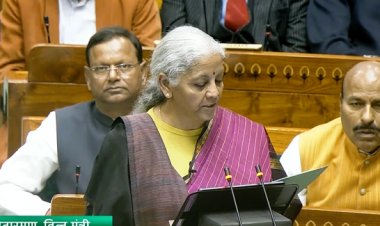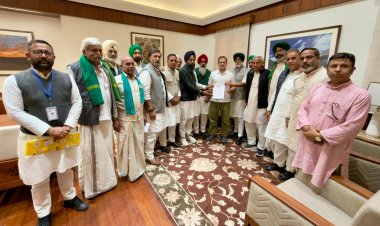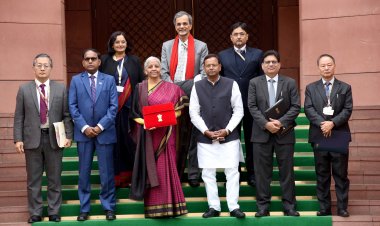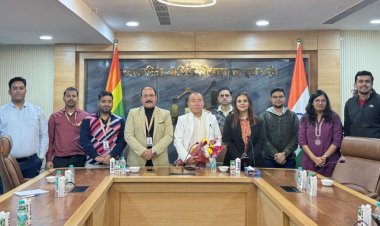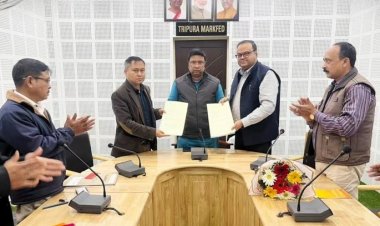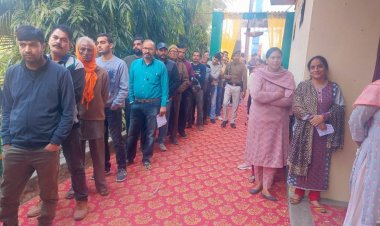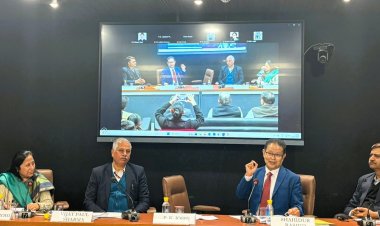Coal transition poses serious challenges for marginalized communities, NFI study
The National Foundation for India has said in a report that the coal transition has created serious challenges for marginalized communities. This will not only increase economic pressure on them, but they will also have to struggle for alternative livelihoods.
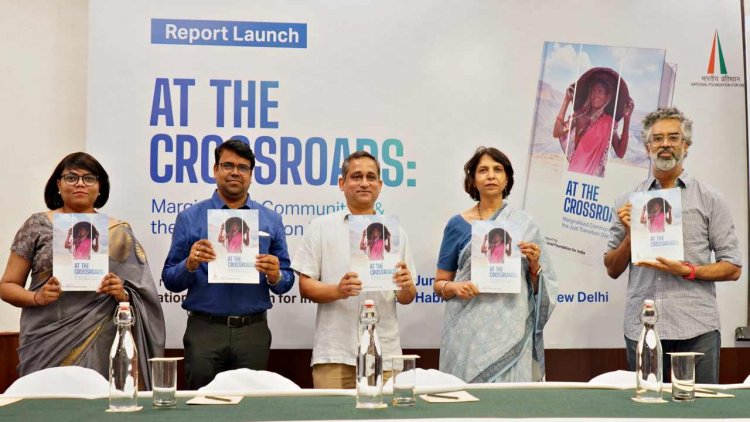
The transition away from coal poses significant challenges for marginalized populations, reveals an extensive study carried out by the National Foundation for India (NFI). The findings of study released in the form a report on Wednesday notes that 41.5% of surveyed households belong to Other Backward Classes (OBC), 23% to Scheduled Tribes (ST), and 17% to Scheduled Castes (SC), with only 15.5% from the General category.
A significant portion of the population, particularly among SCs, STs, and OBCs, has limited access to education, with many having only primary education or no literacy. The study report titled, "At the Crossroads: Marginalised Communities and the Just Transition Dilemma", is a sequel to the 2021 study by NFI on the socio-economic impact of coal transitions in India. The study covered two districts each from three central Indian states—Chhattisgarh, Jharkhand, and Odisha, surveying 1209 households and conducting 20 Focused Group Discussions (FDGs). The study highlights the much higher representation of SC/ST and marginalised communities, with significant disparities on education and health.
key findings of the study
Health Concerns: Prolonged exposure to coal mining pollutants has resulted in widespread respiratory and skin diseases among the local populations. At least 75% of participants in Focus Group Discussions (FGDs) reported issues
such as chronic bronchitis, asthma, and various skin conditions.
Economic Impact/Economic Dependency on Coal: The phasing down of coal is expected to result in significant job losses and economic downturns in coal-dependent regions. This will not only impact the coal miners and workers directly but also the broader local economy.
Caste-Based Inequities: Access to resources and opportunities is significantly skewed, with marginalized communities such as Scheduled Castes (SCs), Scheduled Tribes (STs), and Other Backward Classes (OBCs) being disproportionately affected. The report identifies several challenges in achieving a just transition, including the need to upskill a largely under-educated workforce and the lack of alternative livelihoods. It underscores the importance of community-specific policies, robust institutional mechanisms, and coordinated efforts between government bodies.
The study offers a potential framework for safeguarding the interests of these communities through alternative livelihoods,ecological restoration and inclusive policies.
Alternative Livelihoods: Emphasizing the development of new economic opportunities beyond coal.
Ecological Restoration: Promoting environmental recovery to mitigate the health impacts of coal mining.
Inclusive Policies: Ensuring that the transition policies are inclusive and consider the needs of marginalized communities.
"Social and economic disparities were evident across districts, with varying income levels and irregular wage receipt patterns,” said Pooja Gupta, co-author of the study and a research associate at NFI. “Dhanbad (Jharkhand) and Koriya (Chhattisgarh) are solely reliant on coal production, reported lower incomes compared to more diversified industrial districts like Angul (Odisha),” added Gupta.
She also pointed that during the survey and field visits, access to basic welfare schemes was notably lacking, exacerbating the vulnerability of these communities. It was also found that the policy and institutional challenges loomed large, characterized by administrative negligence, poor service delivery, and fragmented governance structures. "Without a clear plan in place, workers in declining industries may face sudden job losses without adequate support or alternative employment opportunities; exacerbating tensions within the affected communities,” she remarked.
"The findings highlight the stark caste-based inequalities in access to education and livelihood opportunities in coal-dependent regions," said Biraj Patnaik, the executive director of NFI. "There is an urgent need for community-specific policies and robust institutional mechanisms to address the socio-economic impacts of coal transition on
marginalized communities," he added. Patnaik also hoped that this report will catalyse meaningful discussions and actions towards a just transition, ensuring that the vulnerable populations are not left behind in the move towards a cleaner, sustainable future.



 Join the RuralVoice whatsapp group
Join the RuralVoice whatsapp group


















